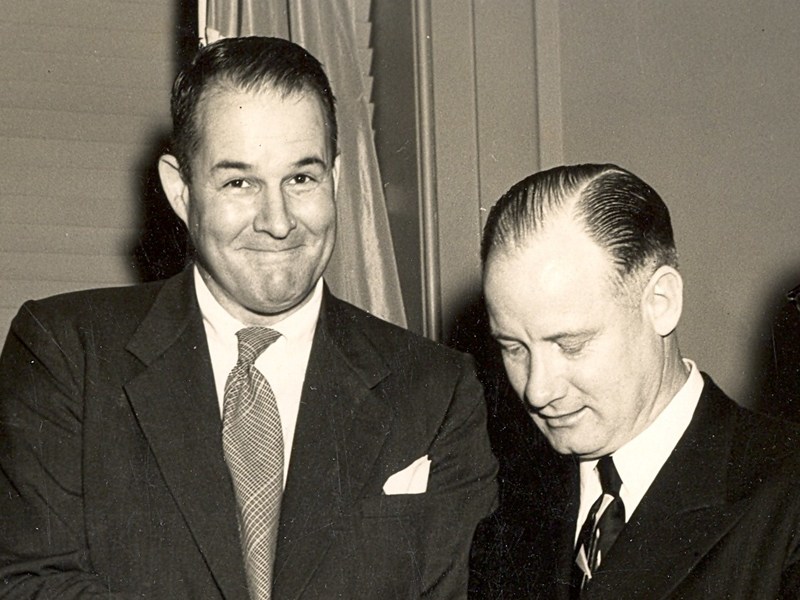Otis Smith’s efforts in civil rights topic for LHS program Feb. 17

Tom Brown really savors history and the pursuit of learning how the past has shaped the present. A retired archivist for the National Archives in Washington, D.C., he has kept alive his desire to delve into American history by working as a volunteer researcher for The Lewes Historical Society.
Last year Brown’s research on the early years of the menhaden fishery was presented at the January, 2011 historical society program. One year later, after sorting through a sizable trove of materials on Otis Smith and his factory workers, he will provide the society with a different perspective on the menhaden fishery. His talk, in observance of African-American History Month, titled “Otis Smith and the Civil Rights Movement 1937-1967,” will be presented at the 7:30 p.m., Friday, Feb. 17 program, at Lewes Presbyterian Church Fellowship Hall, Kings Highway.
According to Brown, many people are not aware of the efforts of former Lewes mayor and Fish Products Company/Seacoast Products chairman and CEO Otis Smith and his involvement in the civil rights struggles of the 1950s and early 1960s.
“When it came to civil rights and the hiring of black people at his fish processing plant, Smith worked quietly and avoided publicity,” said Brown. “He really managed to stay out of the limelight as an early supporter of desegregation by virtue of his involvement and influence in several human rights organizations, including his role as state chairman of Radio Free Europe, chairman of the National Conference of Christians and Jews and as vice chairman of the Delaware Advisory Committee to the U.S. Commission on Civil Rights.”
Brown’s talk will feature historical photos and images of workers at the Fish Products Company from the historical society’s archives and a collection recently donated to the Lewes Historical Society by Hazell Smith, Otis Smith’s former wife.
Smith came to Lewes in 1938. By the 1960s his Fish Products Company had made Lewes the largest fishing port in the U.S. and one of the largest menhaden fisheries in the world. The fish processing plant was located on the site now occupied by the Cape May-Lewes Ferry terminal, Port Lewes and Cape Shores. He served as mayor of Lewes from 1950 to 1968. His operation employed more than 500 people in Lewes, many from the black community.
Brown, a staff member at the National Archives for more than 30 years before retiring in 2006, spent his last 18 years as the manager of the Archival Services in the Center for Electronic Records. He holds a Ph.D. in American history and sociology from Oklahoma State University. He was elected a Distinguished Fellow of the Society of American Archivists in 1996.
The Lewes Historical Society invites everyone to attend. Programs are held on the third Friday of every month except December. Light refreshments will be served following the presentation.













































